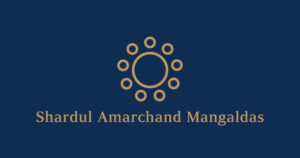India’s Ministry of Corporate Affairs recently issued a discussion paper inviting comments on a host of amendments proposed to the Insolvency and Bankruptcy Code, 2016. While the window for comments has now lapsed, any amendments are yet to be enacted.
In the paper, the ministry raised concerns over instances where members of the committee of creditors (CoC) with a substantial voting share abstain from voting on important decisions, which inevitably delays the resolution process.
Major decisions
To address this, the ministry suggested revising the voting threshold for “major decisions”. It proposed approval of a major decision if it passes a two-fold test: (1) it is approved by two-thirds of CoC members present and voting; and (2) the voting share of such members approving the major decision is at least 51% of the total voting share.

Partner
Shardul Amarchand Mangaldas & Co
The voting share of a lender unable to vote for any reason would only be taken into account to determine if such a decision was approved by more than 51% of the total voting share of the CoC.
In this context, ascertaining which CoC decisions will fall under the ambit of “major decisions” is important. At present, any CoC decision to permit withdrawal of the resolution process requires approval of 90% of the total voting share. Certain decisions require approval of 66% of the total voting share, such as approval of the resolution plan, approval of liquidation, appointment or replacement of the resolution professional, and filing of applications for extension of the resolution process.
Other decisions that do not have a specific voting percentage prescribed require approval of 51% of the total voting share.
The issues
While the discussion paper did not touch on this aspect, it is reasonable to assume that the proposed voting threshold would apply to decisions that presently require approval of 66% of the CoC.

Associate
Shardul Amarchand Mangaldas & Co
However, considering the criticality of some of these decisions – such as the approval of the resolution plan or approval of liquidation – effectively reducing the present voting threshold may be detrimental to the objectives of maximising asset value and balancing the interests of all stakeholders.
It is also crucial that the proposed amendment does not extend to decisions permitting withdrawal of the resolution process, which may compromise the entire resolution process.
Therefore, the ministry and the Insolvency and Bankruptcy Board of India (IBBI) should deliberate on each decision that would be approved based on the proposed voting threshold.
Lender interests
It is also necessary for lenders to consider that the proposed amendment may, in effect, reduce the number of votes required to approve major decisions. As a result, lenders will have to take necessary steps to protect their interests.
For instance, lenders should make sure that internal authorisations are obtained well in time to prevent any failure to register their vote.
Importantly, when voting on matters is done physically at meetings, lenders must make sure that representatives with adequate authorisation are present, to avoid abstaining from voting.
It is often the case that lenders are represented by members lacking relevant decision-making authority, which hampers timely completion of the resolution process. This has been a longstanding concern for the IBBI. In 2018, the IBBI issued a circular – rescinded in 2022 for a corresponding enabling provision inserted in the relevant regulations – stating that lenders should be represented in CoC meetings by persons who are authorised to make decisions on the spot, without having to postpone decisions for want of internal approvals.
This came against the backdrop of certain orders of the National Company Law Tribunal reprimanding CoC members for failing to nominate representatives with required decision-making authority, causing the depletion of asset value of the corporate debtor.
In 2021, the IBBI also proposed a code of conduct for the CoC to increase its accountability and transparency. One of the elements of this code of conduct was that lenders should nominate representatives with sufficient authority to participate in meetings and make decisions during the resolution process. However, the code of conduct is yet to be implemented.
While the jury is still out on the effect of these measures on the CoC, the proposed amendment might just force the hand of lenders to ensure more efficient decision-making. That is, if the amendment sees the light of day.
Anurag Dwivedi is a partner and Shashwat Bhaskar is an associate at Shardul Amarchand Mangaldas & Co.

Shardul Amarchand Mangaldas & Co
Amarchand Towers
216, Okhla Industrial Estate Phase III
New Delhi 110 020, India
Contact details:
T: +91 11 4159 0700, 4060 6060
New Delhi | Mumbai | Gurugram | Chennai |
Bengaluru| Ahmedabad | Kolkata



























